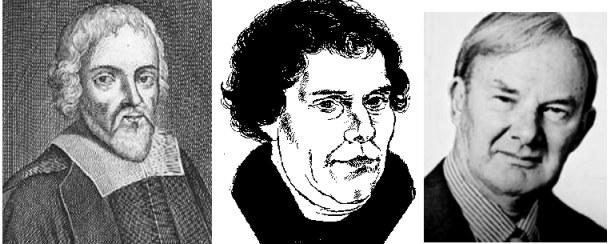When and How in the History of Theology Did the Triune God Replace the Father as the Only True God?
A new paper on when and how the biggest change in the history of mainstream Christian theology occurred.
A new paper on when and how the biggest change in the history of mainstream Christian theology occurred.

Unlike Redirectors, Revisers don’t change the subject. Unlike Resisters, they don’t claim we should just “live with the tension”. Unlike practitioners of Restraint, they don’t think we can put off the issue. Like Resolvers through Rational Reinterpretation, they have a solution. But they don’t think tricky, new, more careful formulations are what is called for. Rather, something must go out on the rubbish heap. Revisers are usually accused of arrogance, lack of respect for tradition, biblical ignorance, idolatry of human reason, not being Christians at all, and of hating babies and cute little puppies.
Open theists are RevisersRead More »Dealing with Apparent Contradictions: Part 20 – Resolution by Revision
In this guest post, our friend Mario Stratta expounds the prologue of the gospel according to John. – Dale I believe that the Prologue to John’s Gospel speaks about the Incarnation of God’s Word (Logos) in/as the “man called Jesus” (John 9:11). Where I disagree with the Trinitarians, Subordinationists and Arians, is that the Word had a personal subsistence (hypostasis), distinct from that of God,… Read More »The Incarnation of God’s Logos (John 1:1-18)
As we saw last time, Burke in round 5 argues like this: 2nd c. catholic theology was predominantly subordinationist. If the apostles had taught the Trinity, this wouldn’t have been so. Therefore, the apostles did not teach the Trinity. In a long comment (#23) Bowman objects, For some reason… anti-Trinitarians think it is bad news for the doctrine of the Trinity if second-century and third-century… Read More »SCORING THE BURKE – BOWMAN DEBATE – ROUND 5 – BURKE – Part 2
What Origen actually says vs. what trinitarians wish that he’d said.
Kimel lampoons the biblical unitarian historical narrative, and urges that Irenaeus is a big problem for it.
A new debate book with four analytic theologians on clashing views of the Trinity.
I had the privilege yesterday of being interviewed by Sam on his Transfigured podcast. The episode is below. Sam did a great job with the episode. We discuss my opening arguments, and I give some hot takes on the rival views of my co-authors. Here’s the YouTube version; you can get the audio-only version wherever you get your podcasts. It will make the most sense… Read More »Transfigured podcast interview on the debate book
Help James Anderson defeat my defeater for his defeater-defeater. Here. (The target.) What’s all this defeater business? Michael Sudduth explains here. I do not look forward to the agony. May all your defeaters be defeated – except the ones you have for false beliefs.
Bill Vallicella, the famous Maverick Philosopher, just dropped me a line asking whether, when Thomas Aquinas and Baruch Spinoza use the term ‘Deus’, they are referring to the same being. This is a difficult and interesting question. Bill uses the Latin name ‘Deus’, alluding to the fact that both men wrote in Latin. Latin was the choice of the ‘scholastic’ theologians of the 13th century,… Read More »God and Deus
Thank you for agreeing to an interview! There are two ways we can do this: I record you over the phone. This is easiest for you, but your side does sound like a phone call. You record yourself, using your own smartphone, tablet computer, or computer, and upload the resulting .mp3 (OK) or .wav file (best) here. Here one episode (Ipad) and another (Android smartphone).… Read More »Dear interviewee,
In recent posts here and here my co-blogger and friend arch-nemesis Chad McIntosh has tried his hand at refuting my Divine Deception argument. I’ve already responded to numerous tries to get around it by my friend Bill Hasker here and here. But to his credit, Chad is thinking creatively and coming at it from some new angles. First, it’s important to be be clear about the… Read More »“Divine Deception” Defended
Want to debate (or just refute) me? Here are some things you should study.
The gospel commits us to more than: “Jesus died” is (somehow or other) true.
Central to Dale’s divine deception argument against Social Trinitarianism (ST) is the following analogy. Little orphan Annie is one day adopted by a man named Fred who claims to be her father. Fred lovingly raises Annie over the years, but for unknown reasons will not see her in person. But, at long last, Fred finally does meet her. Much to her surprise, however, Annie meets… Read More »Dale’s Divine Deception Dilemma
In round 3, Burke comes out swinging and swinging. But how much does he connect? In my judgment, somewhat. Here’s an overview of his case, with some critical comments, and at the end I score the round.
In my judgment, somewhat. Here’s an overview of his case, with some critical comments, and at the end I score the round.
First, Burke argues that Jesus’ messianic roles as atoning sin-offering, priest, redeemer, and Davidic king, do not require him to be divine, and further, that the first and last of these require that he is not God. I take it Burke’s point is that they require Jesus to be a human, and that no human is divine. Flag: In this context, the point is question-begging. Bowman no doubt affirms Chalcedon, according to which Jesus has both a divine and a human nature.
Next, Burke has a nice discussion of the Jewish habit, well attested in the NT and in other ancient writings, of talking about what God has predestined as already existing in heaven. This affects what one considers the natural reading of passages like John 17:5 (NIV) “And now, Father, glorify me in your presence with the glory I had with you before the world began.” Burke nicely sketches the line of thought behind this habit – what is predestined is as good as done, so what is future is moved back, as it were, to the past or present – to a time which is “too late” to avoid. He gives a vivid example from Paul of talking about a future event as present: “And God raised us up with Christ and seated us with him in the heavenly realms in Christ Jesus…” (Eph 2:6, NIV)
What is the significance of this? Read More »SCORING THE BURKE – BOWMAN DEBATE – Burke 3
In my comments on his first salvo, I wondered exactly what Trinity doctrine Bowman means to defend. (Some kind of modalism?) After round two, I said that Bowman has owned up to affirming a contradiction – trying to pass it off as a “mystery”, i.e. a merely apparent contradiction. In round 3, Bowman ignores these fundamental conceptual difficulties for his position, and soldiers on with… Read More »SCORING THE BURKE – BOWMAN DEBATE – Bowman 3